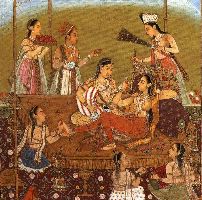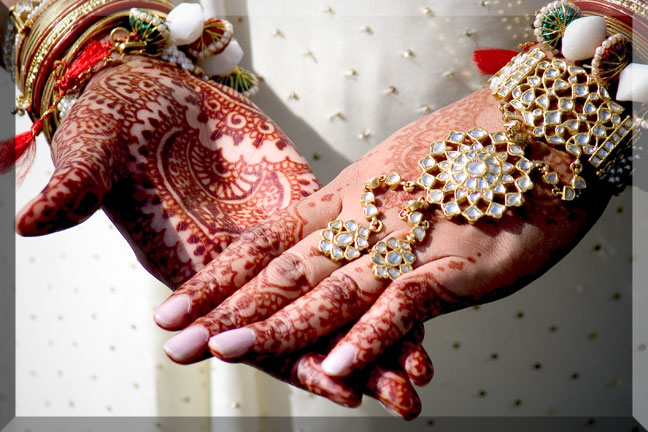 Just
like Newton or Einstein, we create our own hypotheses about sex. Some base
theirs in experience, some in family story and some in faith. For the twenty-something
in America, these hypotheses sometimes meld together, creating conflicting
ideas about sex. Some say get it over with early and get on with the rest of
your life. Some say fall in love and share it with someone special. Some say
wait till your wedding night. What to do? What to do?
Just
like Newton or Einstein, we create our own hypotheses about sex. Some base
theirs in experience, some in family story and some in faith. For the twenty-something
in America, these hypotheses sometimes meld together, creating conflicting
ideas about sex. Some say get it over with early and get on with the rest of
your life. Some say fall in love and share it with someone special. Some say
wait till your wedding night. What to do? What to do?
Sex in a Modern Society
Today,
society places an incredible
emphasis on sex. It is entrenched in
everyday commercials, music, movies, and school life -- so much that one cannot
help but feel bombarded by it. Who can dodge songs like "On the Hotline"
by Pretty Ricky, ignore the innuendo in an Axe deodorant commercial or separate
from the themes of recent movies like No
Strings Attached? Must I say more?
Schools are teaching sexual education in high, middle and even some elementary classrooms. Hey, and if you need a condom, they are doled out by residence assistants, nurses, etc. on your college campus.
By age twenty, 75 percent of Americans have already had sex - premarital sex that is - according to Jennifer Warner in "Premarital Sex: The Norm in America."
And,
it apparently gets even harder to hold out as one gets older. That number
rises to 95 percent by age 44.
The
question is why. Why has society begun to integrate sex lessons and STD
prevention earlier and earlier into human development? And why is premarital
sex the "norm" in America?
It must mean that marriage has taken a backseat to sex.
Jennifer Baker of the Forest Institute of Professional Psychology in Springfield, Missouri says that 50 percent of marriages end in divorce, 67 percent of second marriages also end in divorce. And, 38 percent of those divorced couples are between the ages of 20-25.
So, it's no wonder that it's better to share a sack without saying, "I do." The numbers tell us to quit while we're ahead.
Career over Marriage
Blame the emerging adulthood movement.
Applicable to young adults in developed countries who do not have children or begin a lifelong career in their early 20s, "emerging adulthood" is a phase of the life span between adolescence and full-fledged adulthood, proposed by Jeffrey Arnett in in a 2000 article in the American Psychologist.

The study of emerging adulthood appears to be reinforced within particular economic and historical contexts such as the 2007 financial crisis.
Within industrialized economies at the present time, young people need increasing amounts of education to obtain jobs in many technical/professional fields. The pursuit of postgraduate training thus tends to delay marriage and permits added years of "finding oneself" through sexual escapades or otherwise.
According to Wikipedia, the median age at first marriage in the early 1970s in the U.S. was 21 for women and 23 for men. By the year 2009, it had risen to 26 for women and 28 for men.
So, the bottom line is there's an excuse for why sex trumps marriage. And the most common one today is the pursuit and maintenance of one's career.
For the emerging adult, to marry and start a family can mean being "tied down."
Women who once fantasized about walking down the aisle donning a flowing white gown and bouquet have traded that daydream in for a hustle down the aisle with a cap, gown and MBA. They've erased/postponed marriage dates in their Blackberries and planners.
According
to a study by Catherine Mosher of Duke University Medical Center and Sharon
Danoff Burg at the University of Albany, 51 percent of women place romantic
relationships over achievement.
But surprisingly, more than 60 percent of men would still choose love over career.
"For men, romance, then marriage, then children may be unlikely to lead to the interruption of their career," said Ellen Klosson, a psychologist, on CNN News. "For women, having children is likely to be more disruptive to their career."
A majority, 54%, of American mothers have a university education and 20% of American women in their 40s do not have children; being childless was considered bizarre in the 1950s, according to Wikipedia.
So, if marriage and family are likely to "tie" a man down and are "disruptive" to a woman, the results are quite apparent in American society in the 21stcentury.

"Recent studies have found professional women are more likely to get divorced, more likely to cheat and less likely to have children," said journalist Michael Noer. "And, if they do have kids, they are more likely to be unhappy about it."
So, then premarital sex it is.
According to many, it satisfies your craving for milk without obligating you to buy the whole cow.
"Life is like a box of chocolates and you never know what you're gonna get, so you might as well try things out. Having sex without responsibilities is the American dream... without babies and STD's - that is,"said Felix Adams, 19.
Sex in Ancient Times
In
ancient times, sex was not taboo. It was actually required for a man and woman
to satisfy one another sexually.
The only catch was they had to be husband and wife.
 In
ancient Chinese and Indian cultures, sexual satisfaction was a mutual duty of a husband and wife and
these cultures still stay true to the concept.
In
ancient Chinese and Indian cultures, sexual satisfaction was a mutual duty of a husband and wife and
these cultures still stay true to the concept.
According to HPS Health, "the Chinese have always held the Taoist view that sexual relations between male and female are the primary earthly manifestation of the universal principles of Yin & Yang."
The Chinese believed that women had an unlimited amount of Yin and men had a limited amount of Yang; hence, the Yin Yang sign symbolizes togetherness.
India
is known to play a significant role in the history of sex.
For
example, the second century book, Kama
Sutra or the "science of love," derived from the Hindu religion, is well
known for its lists of sexual positions and ideas about love making.
Nevertheless, it includes seven chapters about the marriage union and wifely duties. So, it stands to reason that this philosophical work is in large part a technical guide to pleasing a sexual partner within a marriage.
"Texts like Kama Sutra support the view that in ancient India, sex was considered a mutual duty between a married couple, where husband and wife pleasured each other equally, but where sex was considered a private affair, at least by followers of the aforementioned Indian religions," states an article on "The History of Sex in India" in Wikipedia.
And although polygamy seemed to be practiced by rulers, common people maintained monogamous marriages.
During this time period, arranged marriages were instituted and they still account for an overwhelming amount of Indian marriages today.
Husbands and wives were matched by families based on a set of criteria and both parties were expected to remain abstinent until the wedding night.
Today, more than fifty percent of girls in India are married by age 18.
Other
eastern hemispheric nations like Egypt and Israel are no strangers to sex in
connection to marriage either. 
In Egypt, men and women were encouraged to marry between the ages of 15 and 17. Since men do reach their sexual peak between the ages of 18 and 22, their timing seemed fitting.
There
was no shirking responsibility in ancient Egypt. Bearing children was first
priority for men. Their proof of manhood was their child. Conversely, men in
America deem their proof of manhood is when they have had sex.
In Israel, women were married at 11 or 12, which was just as she entered puberty. This practice ensured that the woman was pure because biologically a woman's sexual desire is ripened at age 12. At her ripest, she would already be married.
In
all of these cultures, the act of sex consummated the marriage and sealed the
bond between man and wife.
While there were the few exceptions of the practice of concubines, polygamous kings and Roman orgies, all in all, sex was only for marriage.
And, again, there was no worry of the horny Egyptian teenager because marriage occurred very early for them.
Sex: Effects on the Mind and Body

Assuming that all the facts presented are true, what if I'm a goal-oriented college student studying to become a doctor. And, what if I'm not ready to be married and I'd much rather focus on school? What is my hope for remaining abstinent until marriage?
"My mind's telling me no, but my body's telling me yes!" It seems that R Kelly's song was right on point.
If
a man's sexual peak is between the ages of 18 and 22, this is right around the
time when he'd be hard at work poring through a Grey's Anatomy texbook.
No wonder the RA keeps condoms on hand.
For
women, that age is still a mystery. Researchers once said that a woman's sexual
peak was around the mid-thirties but with more recent studies, that seems to
not be the case. This number seems to vary with each woman.
And, quite frankly, with a hot, sweaty primetime line up of Sex and The City, Degrassi, and The Game, nurturing young women, then it's not a far cry to say that the sexual peak has dropped to the twenties range.
Interestingly, studies have proved that if women do not have frequent sex in their mid-twenties, then their sexual desire may wane and can also cause irregular periods.
Based on an article,"17 Reasons Why Having Sex is Good For Your Health," sex has been proven to improve mental health, cleans pores, burn calories, improve cholesterol, and even lower the risk of prostate cancer in men.
And according to Nicholl McGuire in "The Side Effects of Going without Sex," not having sex can cause psychological effects such as irritability, depression, sadness and insecurity.
These
bodily urges and irregularities can be problematic for those willing to wait it
out for that specific spouse.
If one is still a virgin, the general side effect is the constant desire of wanting to have sex.
"I'm not gonna lie, sometimes it sucks," said Shaquin McCloud, 18, "But, I don't wanna just do it to do it. I want to have sex with someone that means something to me and that's what makes it special. That's the difference between having sex and making love."
Abstinence at 20, 30, and especially 40 can become all the more frustrating.
But,
both physical and emotional stresses are evident if one has had sex and
afterward decides to withdraw from it.
"When you open yourself up to someone and do decide to have sex, there can be an emotional attachment. If that relationship ends, one can get caught up and this causes a lot of emotional trauma such as stress or depression," said Marriage Counselor Elaine Bookal.
So, while it seems like torture to wait, there are health benefits to marriage.
"You have less depression, less anxiety disorders, less psychosis, less post-traumatic stress disorders, fewer phobias. You also have fewer injuries due to accidents," according to psychologist John Gottman, PhD in "Marriage is Good for Your Health."
Do I Really Have to Wait for Sex?
For
some, the Biblical standpoint is evident. Premarital sex is not in any way
acceptable according to the Bible (1 Corinthians 6:14-16).
According
to Jody Mc Callah, 33, who has been happily married for 12 years, sex is beyond
physical.
Callah, 33, who has been happily married for 12 years, sex is beyond
physical.
"You're cheating on your spouse before you're even married," said McCallah. "Even the with the divorce rates, I can see how that may cause a young person to see no point in waiting. But, you can't get married off the world's standard. The world's standard is selfish, but if you do it from a Godly perspective, then it will work."
Still, some use a little of the world's standards and a little of God's standards to create their own hypotheses.
Meet 26-year-old Youth Pastor Tyrone Thompson. He's the typical Christian emerging adult who's delaying marriage for the work of God. Even though he can't squelch the desire for sex and marriage, it's all he can do to delay it for a while.
"Being single is a tremendous blessing," said Thompson. "It gives me the opportunity to fall in love with Jesus. Don't get me wrong. It is also a tremendous blessing to be married, but I have a better opportunity to go out and do things for God and not have to worry about a home to take care of, a wife or children. A help mate is good. It's great, actually, but in the end, there is no one that can love me like God."

